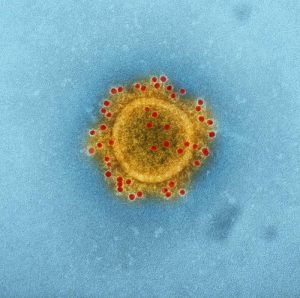By NewsDesk @bactiman63
The Saudi Arabia Ministry of Health reported a laboratory-confirmed cases of Middle East respiratory syndrome (MERS-CoV) infection in a 51-year-old male in Riyadh City.

Health officials note that the patient had contact with camels and didn’t contract the virus from another person.
This is the first case confirmed in the Kingdom since May.
According to the World Health Organization, 2562 laboratory-confirmed cases of infection with MERS-CoV have been reported since September 2012.
In addition, 881 MERS-CoV associated deaths have been reported in the same period.
Infection with MERS-CoV can cause severe disease resulting in high mortality. Humans are infected with MERS-CoV from direct or indirect contact with dromedary camels. MERS-CoV has demonstrated the ability to transmit between humans. So far, the observed non-sustained human-to-human transmission has occurred mainly in health care settings.
MERS-CoV appears to cause more severe disease in people with underlying chronic medical conditions such as diabetes mellitus, renal failure, chronic lung disease, and compromised immune systems. Therefore, people with these underlying medical conditions should avoid close unprotected contact with animals, particularly dromedary camels, when visiting farms, markets, or barn areas where the virus is known to be potentially circulating. General hygiene measures, such as regular hand washing before and after touching animals and avoiding contact with sick animals, should be adhered to.
- Cold virus antibodies may confer some protection against SARS-CoV-2 in children: Study
- Taiwan local dengue transmission cases rise to 70
- Costa Rica methanol poisoning follow-up
- Canada: Pet hedgehogs linked to latest Salmonella outbreak
- Florida Vibrio vulnificus tally this year tops 2019
- Herpes vaccine candidate: Study demonstrates potential to generate antibodies, limit viral shedding
- Saint Lucia dengue update: 28 percent of cases reported in Castries
- China reports 7th human H9N2 avian influenza case of 2020
- Philippines reports 2,000 more COVID-19 cases, 400K kids vaccinated in Ilocos region

